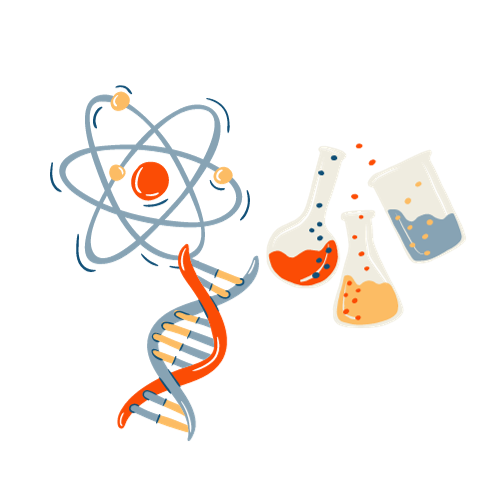Science

The word ‘Science’ derives from the Latin word “scientia” which means knowledge, expertness, or experience. Our Science curriculum embodies each of these characterisations through a deliberately sequenced, knowledge-rich curriculum, delivered through expert specialist teaching with purposeful, carefully planned practical experiences.
We cherish the individuality of Biology, Chemistry and Physics while weaving them together to offer a curriculum that is both distinct and interconnected across all key stages. With a focus on expert teaching, particularly at Key Stage 4 and Key Stage 5, we ensure that students benefit from high-quality instruction that sets consistently high expectations.
Our Key Stage 3 curriculum builds on knowledge and experiences from Key Stage 2 and develops a strong understanding of the key ideas and themes within each subject area. The Key Stage 3 curriculum is developed from the National Curriculum as a baseline for key concepts, skills, and knowledge.
Students start their journey by studying the fundamental ideas of forces, energy, particles, cells, and atomic structure. These are then built on and applied to phenomena pupils experience in everyday life, such as sound and light, acids and bases, body systems and reproduction.
Towards the end of Key Stage 3, a curiosity of the world and universe is fostered within students through the study of more abstract phenomena, linking observation of the world around them to scientific thinking and the development of theories over time. Students study the Earth, Space and the Universe, ecosystems and interdependence to apply their fundamental knowledge gained earlier in Key Stage 3 to explain complex concepts.
Throughout the Key Stage 3 curriculum, students gain an understanding of, and replicate influential experiments that have driven scientific discoveries to explain how the world works, such as the work of Isaac Newton, Rosalind Franklin, and Charles Darwin. The procedural work of a scientist is celebrated and experienced through core practical experiments and experiences, allowing students to develop skills of enquiry and reinforce their substantive knowledge.
In Key Stage 4, study Biology, Chemistry and Physics as either a combined science qualification or as separate science qualifications. Key Stage 4 is taught by experts in their subject specialisms. Key Stage 4 curricula build on the foundations of Key Stage 3. Throughout Key Stage 4, students develop a deeper understanding of complex scientific ideas first encountered in Key Stage 3, in preparation for work, life and further education.
In Key Stage 5, students can choose to specialise in a particular science or take all three subjects as A-Levels. Each of Biology, Chemistry, and Physics builds on the prior disciplinary and substantive knowledge gained throughout Key Stage 3 and Key Stage 4. Students participate in practical activities regularly, building on their experiences at Key Stage 4 to explore new concepts and ideas.
Each lesson includes retrieval tasks to reactivate knowledge and to ensure understanding of prerequisite knowledge. New knowledge, subject-specific vocabulary and disciplinary skills are intentionally and explicitly taught and retrieved often.
Long-term acquisition of knowledge is tested and supported by Tassomai, an online quizzing tool, providing low-stakes assessment for retrieval practice. Students are formatively assessed through short departmental assessments, mid-topic tasks, knowledge quizzes and extended writing. Biannual centre assessments test knowledge synoptically, requiring retrieval of prior knowledge to prepare students for national examinations.
